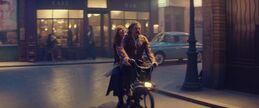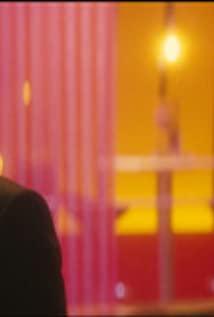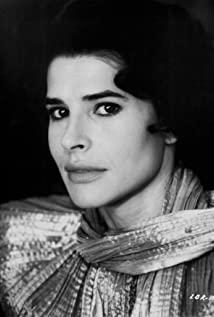Time is really a fascinating thing. It seems that everyone has a day that is so unusual for him. Maybe it's because of one person, because of one thing, that makes him want to go back in time, even if it's just this one day.
If you could go back in time, which day would you choose? In "Belle Epoque", "going back in time" becomes possible. Whether it is a medieval palace, you want to be the queen of all eyes; or a war-torn World War II battlefield, you want to be the negotiator who decides the battle situation. It's all achievable, with a professional company helping you "reinvent the past" with reconstructed scenes and professional actors.
Everyone goes back to the past for different reasons, but what about the protagonist Victor? An old man, unable to keep up with the rhythm of the times, is ignorant of new things. With the development of the media, he even lost his job as an illustrator and gradually became a marginal person in society; his marriage life became more and more indifferent, and the contradiction of savings was imminent. His wife took him away. Out of the house, homeless. For such an old man, where reality cannot give him a sense of value and meaning, where does he choose to find it? In the past, May 16, 1974—the night he met his wife for the first time.
The distance between reality and the past may be just a door. Walking through the dark and narrow corridor and stepping over the threshold, you are in 1974. In this era, there are "rich, poor, right, left," people "protect immigrants, not worried about the economy," people "communicate with each other, don't play mobile phones," and people are still young. More importantly, in the old time created by the props and lighting, Victor can be nourished by young love and get along with the former wife. Victor clearly understands that immersing himself in a fictional scene will not help him reconcile with his wife, nor will he rejuvenate him. He just has nothing to control in reality, and it is better to be paralyzed in a dream than to return to reality.
What really changed Victor was Margot, the actor who played his wife in this fictional scene. She was young and full of energy, and the wife she played was definitely different from the scene. It was her free play and unrestrainedness that combined the image of Victor's beloved wife back then, deeply attracted Victor, and even changed him in real life. To raise the high cost of experiencing the past, he took on jobs that were previously incomprehensible. Because, only in the fictional year 1974, can he meet the "wife" he loves.
In the final analysis, it is the fictional dream that can make Victor change in reality. Rather than relying on Margot to rejuvenate him, it is better to add the catalytic reaction of the years. That's why it was difficult for him to play in the end, and as Margot said when he urged him to return to reality: "We can't control everything. We must accept disappointment, criticism, accept expectations, no longer dazzle, or other. Otherwise, we only When we can live in the first encounter, we have made a draft, but we have lost the real life." Every present cannot be arranged, and we cannot live forever in the arranged past.
Eventually the wife changed her mind and dated Victor again. It's still the scene in 1974, the small restaurant of the year, and the dialogue of the year. The wife said the line in her imagination: "Don't you want to marry me?" The answer was "don't". A wounded heart does not heal so easily. Life can't be an arranged drama, there can be no drafts, and every warm moment will not be easily repeated.
Because this is how we know how to take control of our own life.
View more about La Belle Époque reviews











